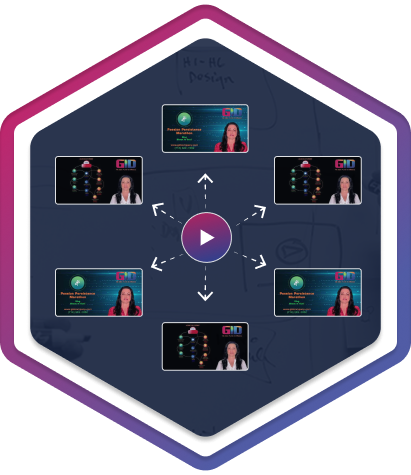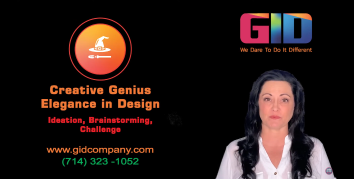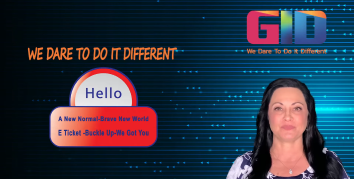Prototype Manufacturing Services - Our Offerings
From Leading Prototype Development Company in California, USA
GID Company - A Leading Prototype Development Company is your bridge to product realization. We transform your concepts into tangible, functional prototypes that empower you to make informed decisions, validate design choices, and accelerate your path to market. Our service is designed to mitigate risks, reduce development costs, and ensure your final product aligns perfectly with your vision and market expectations.
GID Company is a Leading Prototype Development Company based in California and serving while USA. We offer best prototype services to our clients.
- Visualize Your Concept: Transform abstract ideas into physical forms, allowing you to see and feel your product before investing in mass production.
- Validate Design Decisions: Test and evaluate the functionality, usability, and aesthetics of your product, identifying and addressing potential issues early in the development cycle.
- Reduce Risks and Costs: Mitigate the risks associated with launching a new product by identifying and resolving design flaws and manufacturing challenges before mass production.
- Accelerate Time-to-Market: Streamline your product development process by quickly iterating and refining your design based on real-world testing and feedback.
- Secure Funding and Investment: Showcase your product’s potential to investors and stakeholders with a tangible, working prototype that demonstrates its value and market viability.
Partner with GID Company to experience the power of prototype development. Let us help you refine your vision, reduce risks, and launch a product that exceeds expectations. GID Company is California-based product design, development and prototype manufacturing company and serving clients in Florida, Utah, Texas, Arizona, Georgia and across the USA.
Prototype Manufacturing Services - What's included?
From USA Based Leading Prototype Manufacturing Firm
GID Company's prototype manufacturing services are your key to unlocking innovation and accelerating your product's path to market success. We offer a comprehensive suite of solutions designed to transform your concepts into tangible reality, ensuring your product is thoroughly tested, refined, and ready for production.
Our prototype development services include:
Concept Prototypes
Transforming your initial ideas into physical form, allowing for early visualization and refinement of design concepts.
Functional Prototypes
Creating working models that demonstrate key features and functionalities, enabling comprehensive testing and user feedback.
Appearance Models
Crafting high-fidelity prototypes that closely resemble the final product's aesthetics and materials, ideal for showcasing and marketing purposes.
Engineering Prototypes
Developing prototypes that focus on the technical aspects of your product, ensuring its performance, reliability, and manufacturability.
Rapid Prototyping
Utilizing advanced technologies like 3D printing and CNC machining to accelerate the prototyping process, enabling quick iterations and design refinements.
From Idea to Reality - Watch How We Do It!
Explore our videos to see how we seamlessly transform your ideas into reality.

Our Prototype Manufacturing Process
From Trusted Product Prototype Development Company in California
-
Project Kickoff
We initiate a collaborative discussion to understand your product vision, goals, and technical requirements. -
Concept Visualization
We create initial sketches, digital renderings, or 3D models to visualize the concept and gather your feedback. -
Design for Manufacturing (DFM)
We analyze the design for manufacturability, optimizing for cost-effectiveness and efficient production. -
Material Selection
We carefully choose materials that align with your product's functionality, aesthetics, and budget. -
Prototype Fabrication
Using cutting-edge technology like 3D printing or CNC machining, we create a physical representation of your design. -
Assembly & Initial Testing
We assemble the prototype and conduct initial tests to evaluate basic functionality and identify potential issues. -
Refinement & Iteration
We gather your feedback, make necessary design adjustments, and create revised prototypes for further testing and evaluation. -
Comprehensive Testing
We perform rigorous testing to assess performance, durability, and usability in real-world scenarios. -
Final Refinement
We incorporate final feedback and make any last-minute adjustments to perfect the prototype's design and functionality. -
Prototype Delivery
We deliver a fully functional, high-quality prototype that accurately represents your product vision and is ready for further testing or production.
Why GID Company as Product Prototype Development Company?
For Reliable Prototype Development Services in California, USA
GID Company - A leading Prototype Manufacturing Firm is your trusted partner in transforming your product vision into tangible reality through expert prototype development. We offer a unique combination of technical expertise, cutting-edge technology, and a collaborative approach that sets us apart in the industry. Here's why choosing GID Company as your prototype manufacturing agency is a smart move:
Comprehensive Prototyping Expertise
Our team is well-versed in a wide range of prototyping technologies, from 3D printing and CNC machining to vacuum casting and injection molding. We tailor our approach to your specific needs, ensuring the most effective and efficient prototyping solution for your product.
End-to-End Prototyping Support
We offer comprehensive support throughout your entire product development journey, from initial concept to final production. Our prototype development services seamlessly integrate with our design and engineering capabilities, ensuring a smooth transition from prototype to market-ready product.
Rigorous Quality Assurance
We adhere to strict quality control standards at every stage of the prototyping process. Our experienced engineers and technicians meticulously inspect and test each prototype to ensure it meets your exact specifications and performs flawlessly.
Client-Focused Collaboration
We believe in open communication and collaboration throughout the entire prototyping process. We value your input and feedback at every step, ensuring the final prototype aligns perfectly with your vision and exceeds your expectations.
Not Sure Where To Start?
Call JIM
Frequently Asked Questions - FAQs
-
How much does it cost to get a prototype made?
The cost of getting a prototype made depends on factors such as the complexity of the design, materials used, and the level of functionality required. At GID Company, our Prototype Development services are competitively priced, and we work closely with clients to provide high-quality prototypes that meet both budget and technical needs.
-
How do I find someone to make my prototype?
Finding the right partner for prototype development is essential. GID Company is a leading Prototype Development Company, offering end-to-end services from concept design to manufacturing. Our experienced team can bring your idea to life with precision, ensuring a successful product launch.
-
What is the typical turnaround time for prototype development at GID Company?
The typical turnaround time for prototype development at GID Company depends on the complexity and specific requirements of the project. On average, the process can take anywhere from a few weeks to a few months. We prioritize efficiency without compromising quality, ensuring that your prototype is developed as quickly as possible while meeting all necessary standards and specifications. Being a leading Prototype Development Company, our services are designed to deliver timely results to keep your product development on track.
-
What is a prototype company?
A prototype development company specializes in creating early versions of products to test their design, functionality, and feasibility. From USA based prototype manufacturing companies, GID Company’s Prototype Development services provide high-quality prototypes that help refine and validate your product before mass production.
-
What does a prototype developer do?
A prototype developer designs and creates working models of products based on initial concepts. Being a trusted Prototype Development Company, our team works with you through every stage, from design to testing, ensuring your product meets all requirements before entering the manufacturing phase.
-
What companies build prototypes?
Many companies specialize in building prototypes, but GID Company stands out as a premier Prototype Development Company that offers expertise across various industries. We develop high-precision prototypes that enable you to test, refine, and bring your product to market faster.
-
How does GID Company ensure the confidentiality of my product design during prototype development?
Being a leading prototype development Company, GID Company takes confidentiality very seriously throughout the Prototype Development process. We protect your intellectual property through strict non-disclosure agreements (NDAs) and secure internal protocols. Our team follows a highly confidential approach, ensuring that all designs, specifications, and sensitive information are safeguarded. Additionally, we maintain secure communication and data storage systems to ensure that your product design remains protected at every stage of development. Trusting GID Company as prototype development company means you can have peace of mind that your ideas are safe with us.
-
Does GID Company offer any post-prototype development services, such as design refinement or manufacturing assistance?
Yes, Being a leading prototype development company, we offer comprehensive product development services that extend beyond prototyping. We can help you refine your design based on prototype testing, assist with manufacturing, and even provide marketing and launch support to ensure your product’s success in the market.
-
What are the 4 types of prototypes?
The four main types of prototypes are:
- Visual Prototypes
- Functional Prototypes
- Proof of Concept Prototypes
- Production Prototypes
At GID Company, we offer comprehensive Prototype Development services that include each of these prototype types, helping you choose the best approach to validate and refine your product idea.















